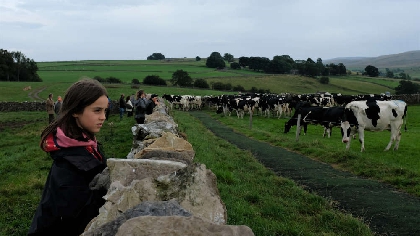
A hi-tech dairy farm in the Westmorland Dales opened to the public last week, promoting the central role that livestock farming has in conserving the treasured landscape of the Yorkshire Dales National Park.
Members of the Dunning family of Raisgill Hall Farm near Tebay led a walkover of their home fields and invited people to enter the milking parlour during milking time, before head of the family Steve Dunning gave a talk in a farm shed. “Soil health is what we’re all about now,” he said, as he set out to explain how the land and the herd is being managed.
The event on Monday 22 August was organised by The Farmer Network and was attended by about 50 members of the public.
It was part of an engagement project which The Farmer Network has been running through the Westmorland Dales Landscape Partnership Scheme, with funding from National Lottery Heritage Fund and the Yorkshire Dales National Park Authority’s Sustainable Development Fund.
Mr Dunning said he decided he wanted to help people learn about farming after being ‘floored’ last year by a visit from holidaymakers. A child, assuming that eggs came from supermarkets, asked him why he was ‘warming up’ eggs in huts near the farmhouse. He said: “I thought, there’s a hell of a story to tell here. We’re passionate about getting people on to farms to understand what we are doing. It’s up to us to educate people about what we do.”
The Dunning family and four staff manage a herd of 160 black and white dairy cows, as well as a traditional Rough Fell sheep enterprise. They are part of the First Milk co-operative and sell their milk through Carlisle to food giant Nestlé, with some milk occasionally going to Lakeland Cheese Co for manufacture into cheddar for export.
Mr Dunning said land in the Westmorland Dales was ideal for dairy farming as the grass grew for ‘nearly 12 months of the year’. He told the assembled visitors there was ‘no way back’ from modern dairy farming’s dependence on huge tractors and silaging equipment, but that hydrogen fuel might be an option for the future. The farm had already cut significantly its greenhouse gas emissions through careful grassland and stock management. No artificial nitrogen was being added at present to the land and a ‘minimum tillage’ approach had been adopted with only very occasional ploughing. A silage clamp was used, avoiding the need to wrap bales in plastic.
Mr Dunning said he was a firm believer in cows being outside for as much of spring and summer as possible. This also meant the farm had a lower carbon footprint compared with farms where cows were kept in all year round. “Christmas Day for me is the day we open that gate [at turnout in May]. You should see them bounce and jump around,” he said.
During the tour Mr Dunning’s son, Mike, said a close eye was kept on ground nesting birds such as curlew. Nests were marked and protected. He also said the farm was working with advisers to plant ‘wildlife corridors’ to connect habitat with neighbouring farms and all the traditional drystone walls were being kept up.
Carol Moffat, East Cumbria & Western Dales Coordinator for The Farmer Network, said: “Part of what we do is to educate the public on farming, and the funding we’ve got from Westmorland Dales Landscape Partnership Scheme means we can put on these events. “It’s really fundamental to get the general public on the side of the farmer. We are trying to promote the great work farmers are doing to produce high welfare and sustainable food.”
Carl Lis, Member Champion for Sustainable Development at the Yorkshire Dales National Park Authority, said: “The Yorkshire Dales National Park was designated as such – in part – because it is a farmed landscape. As an Authority we are deeply committed to advising and assisting livestock farmers to maximise their incomes and the environmental benefits of their stewardship of the land. We are glad to be working with partners such as the Farmer Network to increase public understanding of why it is so important to maintain agricultural use of the land in the Yorkshire Dales National Park.”
The Farmer Network’s project is contributing to several objectives in the Yorkshire Dales National Park Management Plan, including objective B11 on farm open days.



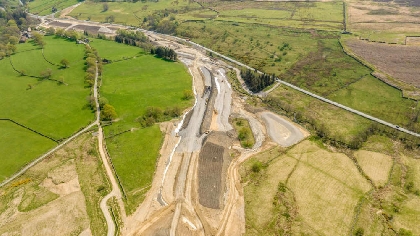 Don’t blame wildlife for £11.7m Kex Gill overspend, say Green councillors
Don’t blame wildlife for £11.7m Kex Gill overspend, say Green councillors
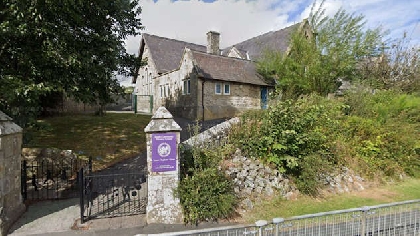 Dales school restructuring won’t make difference to pupils education
Dales school restructuring won’t make difference to pupils education
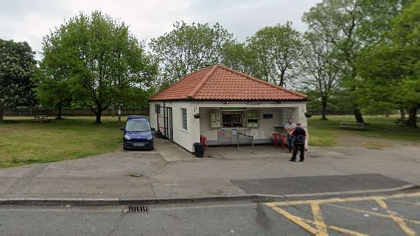 Details behind sudden closure of A66 cafe emerge
Details behind sudden closure of A66 cafe emerge
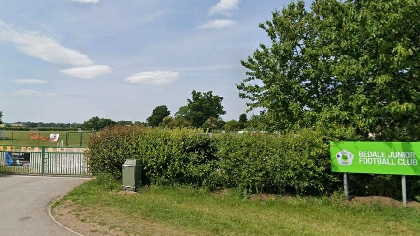 Junior football club may lose funding for promised new pitch
Junior football club may lose funding for promised new pitch
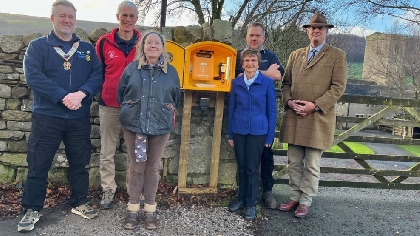 Life-saving defibrillator installed at Dales outdoor centre
Life-saving defibrillator installed at Dales outdoor centre
 Winter Drink and Drug Drive campaign launched
Winter Drink and Drug Drive campaign launched
 Serious collision in Leyburn
Serious collision in Leyburn
 A nutcracker of a Christmas promised in Dales market town
A nutcracker of a Christmas promised in Dales market town





Comments
Add a comment